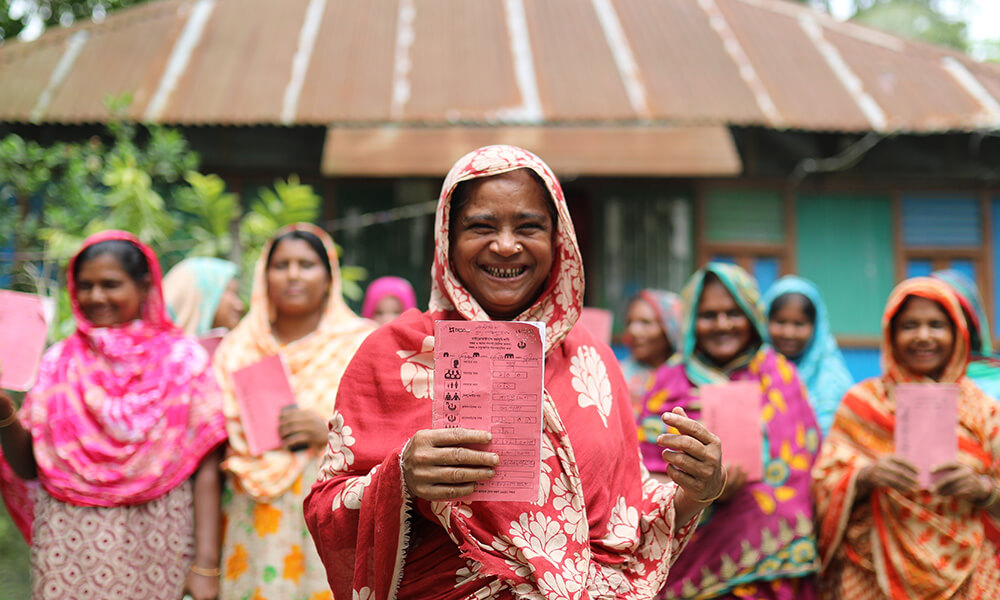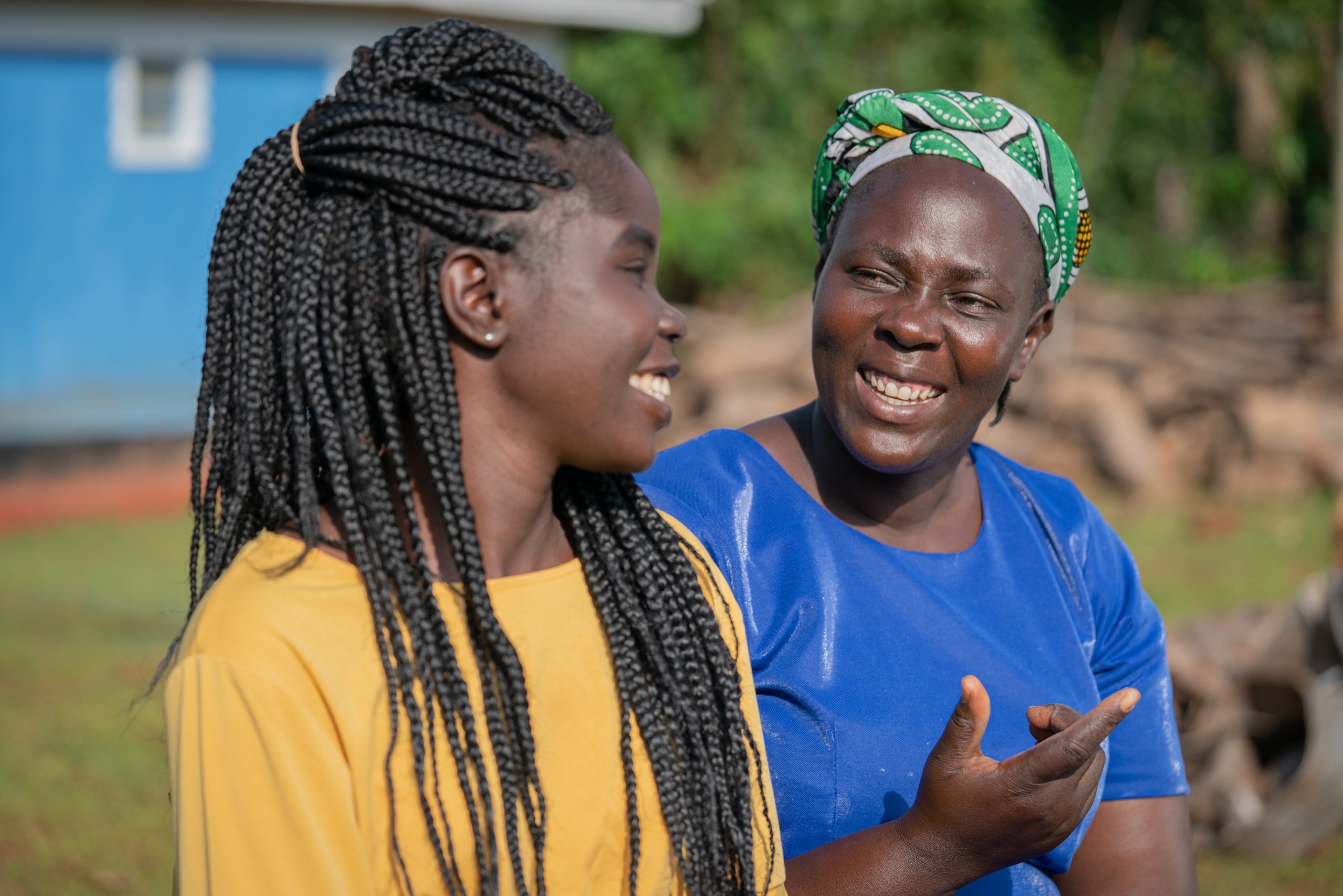

A lifeline for relief, CDFIs are even more essential now for the recovery of under-banked businesses
By Lindsay Smalling
This article originally appeared in ImpactAlpha
When the initial COVID shutdowns hit a year ago, community development financial institutions, or CDFIs, were critical in getting small businesses quick relief through the Paycheck Protection Program, or PPP to make payroll and keep their businesses alive.
Since May 3, when the additional $292 billion Congress allocated this year for PPP funds ran out suddenly, CDFIs are again one of the only routes to emergency funds for businesses still struggling to recover from the COVID disruption, because of a small, $8 billion allocation that was reserved for CDFIs to distribute.
As the PPP winds down, just as it was when the PPP program started, CDFIs are a lifeline for small businesses that have been underserved by traditional banks.
“When the PPP funding for banks ran out in early May, MoFi’s already steady application rate skyrocketed,” says Dave Glaser, CEO of MoFi, formerly the Montana & Idaho Community Development Corp., a Missoula-based CDFI that will have processed over 5,000 PPP loans with an average loan size of $23,000 by the time the program expires.
CDFIs like MoFi immediately rose to the challenge of processing applications that banks could no longer accept. “We knew from the earlier rounds of PPP that MoFi was reaching small business owners that had no other option for accessing this essential support,” Glaser says.
“CDFIs have been well positioned to respond to the needs of underserved businesses that are still struggling to keep their doors open.”
Borrowers Survey
Starting in August 2020, 60 Decibels, with funding from the Surdna Foundation and Ceniarth, partnered with CDFIs to understand the impact of COVID-19 on small businesses and the experience of obtaining PPP assistance. They spoke directly to 1,073 small business owners who are customers of Southern Bancorp, Optus Bank, TruFund Financial Services, Hope Credit Union, BBIF, and MoFi.
60 Decibels research with customers of these six CDFIs after Round 1 and 2 of PPP confirmed that 82% of small businesses could not have easily found an alternative to PPP assistance. Black respondents were nearly twice as likely to report their business would have closed if not for the PPP compared to white respondents.
Providing evidence of the critical role that CDFIs played in reaching businesses that were not served from their existing bank, 88% of surveyed borrowers were not customers of these CDFIs prior to PPP, though 95% had an existing banking relationship. These six CDFIs processed more than 6,000 PPP loans in Round 1 and 2 and distributed nearly $274.5 million in COVID relief to businesses.
Serving the underbanked
CDFIs were essential in reaching small business owners that were largely left out of PPP assistance nationally. In the early rush to secure PPP funding, most national banks gave preference to existing, large customers leaving smaller enterprises out of luck. CDFIs stepped into this void.
Borrower demographics were not required in the early rounds of PPP. As a result, many CDFIs were flying blind as to whether they effectively served their target market of underserved small business owners through the program.
60 Decibels’ survey work demonstrates that despite loosened lending restrictions and increased volumes around PPP, a representative sample across these CDFIs indicates that they continued to serve their target market; borrowers were 45% Black-owned businesses and 43% female owned. Nearly half of the business owners were from low- to moderate-income households.
Not only were CDFIs able to continue serving their target market throughout PPP, they extended their services to new customers. Remarkably, nearly 9 out of 10 respondents were new to the CDFI because of PPP.
These statistics, coupled with the data that 95% of them had a business checking or savings account prior to PPP, indicate that small business owners turned to CDFIs when they were not able to access PPP through their existing banking relationship.
Racial disparities
What if these businesses had not been able to access PPP, like so many throughout the country?
We know that PPP was critical for keeping businesses open and maintaining jobs. More than four out of five respondents could not have easily found an alternative to PPP and 93% said it helped to maintain jobs.
The anticipated business outcomes if not for receiving PPP were significantly worse for Black-owned businesses. When asked the open-ended question “what would have happened to your business without PPP?” nearly half of Black-owned businesses said they believed they would have been forced to shut down, compared to only one-quarter of White-owned businesses.
The highest anticipated closure rate was reported by Black female business owners: 58% believe they would have closed if they hadn’t been able to access PPP assistance.
The fear and stress that business owners experienced due to the high stakes of potentially losing their business was dire, though not surprising. As one business owner said, “I’d be out of business, no doubt about that, and I would be in the street, no place to live and no place to work. It would be terrible. They literally saved me.”
While COVID-19 took the whole world by surprise, a seemingly obvious question around business preparedness reveals significant differences by race. 67% of Black-owned businesses report being unprepared or very unprepared for the challenges brought on by the pandemic vs 43% of White-owned businesses. Racial disparities in social safety nets, business and personal savings, and community wealth are all potentially systemic contributors to this varied resilience.
High marks
After finding their way to a CDFI — one-third of respondents had formally tried unsuccessfully to access PPP through another lender — small business owners received excellent service and support in navigating the PPP application and forgiveness. 60 Decibels measures this satisfaction through a Net Promoter Score (NPS), an indicator that captures a customer’s propensity to recommend a service to others. The participating CDFIs achieved an average Net Promoter Score (NPS) of 79; any NPS above 50 is considered very good.
A qualitative follow up question as to why a respondent would or wouldn’t recommend the CDFI to a family member or friend surfaced overwhelming praise, such as one respondent who shared, “The experience has been very personal. Truthfully, we feel like we have a personal banker, there’s a representative who knows our name and calls us, and that type of environment we can appreciate.”
Customer satisfaction was credited to the CDFIs efficient and easy process, good communication and follow through, and human connection. These are also the primary reasons they would recommend their CDFI to a family or friend. Another business owner said, “They [CDFI] should be commended for doing this for people who qualify. No other banks in our area are doing this. They aren’t just a bank, but a family, they do a lot for this community.”
These testimonies are in sharp contrast to the experience that was reported in the mainstream media on small businesses who were shut out of PPP by the major banks.
CDFIs are an essential source of technical assistance to underserved business owners and when asked how much time CDFI staff spent helping with the PPP application, the results averaged out to two hours per customer. One customer shared, “Their staff were so willing to work with you. They are there to assist you and when they assist you, they don’t make you feel like you’re not qualified to speak with them.”
The quality, tailored assistance CDFIs provide to underserved business owners will continue to be critical in the months ahead. When asked about their need for business support in the next 6–12 months, 76% of Black-owned vs 59% of White-owned businesses anticipate needing additional capital to return to business as usual. Whereas 16% of White-owned businesses report already being back to normal, only 4% of Black-owned businesses are.
Listen Better
CDFIs continue to play a critical role in reaching and supporting small businesses through the PPP and beyond. Despite their exceptional assistance, Black business owners were less prepared, hit harder, and are recovering more slowly from COVID shutdowns.
At all phases of the PPP program, including its abrupt ending well before the May 31 deadline, anyone looking at the data can see systemic racial inequity in access to government support, and that CDFIs were the most effective channel for reaching BIPOC-owned businesses. That data is being used to catalyze legislative action and to channel investment and philanthropic support to CDFIs and others who are well-positioned to respond.
Any equitable US recovery will need to be dynamic and responsive to the changing needs and challenges of small business owners in a way that broad demographic statistics cannot fully support. By listening better, each of the participating CDFIs in this study has used the unique insights from small business customers, sharing their experience and challenges in their own words, to improve their customer service, outreach, fundraising, and technical assistance.
And for anyone looking for confirmation that CDFIs are a key conduit for impact-first, racial justice investing, the most compelling evidence-base comes from the customers themselves.
